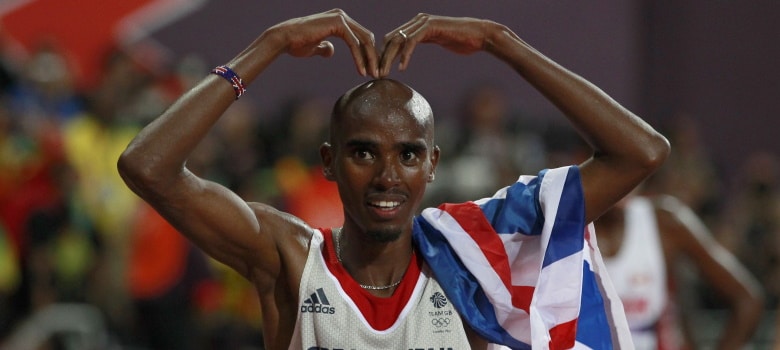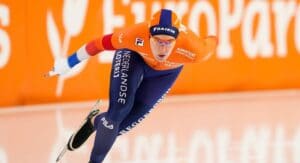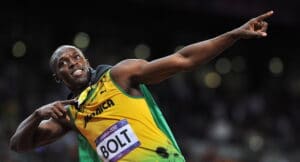The Olympic Games is the pinnacle of elite global sport and it is fair to say there have been some iconic moments over the years that have seen individuals involved in actions that have seen them go down in history for their achievements
The delayed Tokyo Olympics are due to get underway later this month, with 16 days of top-level sport set to take place across a variety of disciplines.
These range from tried and trusted events such as athletics, swimming and cycling, to sports like skateboarding and karate that will be making their debuts at the Games.
As with every Olympics, there are sure to be numerous stories and individual successes that will go down in history, and we have looked back at some of the most memorable moments from past Games that people throughout the world are still talking about to this very day.
Jesse Owens – Berlin 1936
American track and field star Jesse Owens arguably produced the best individual performance ever seen at the 1936 Olympics in Berlin, as he won a staggering four gold medals in the 100 and 200 metres, the 4×100 metres relay and the long jump.
That may be some way short of the individual record for most golds at a single Games, but as a black athlete, Owens’ achievements have gone down in history, as he won his gold medals in front of the then German leader Adolf Hitler, who had been hoping to use the Games to promote his own political agendas.
The 1936 Olympics proved to be the only Games that Owens competed at, but he had already written his name into the history books by virtue of his achievements in Berlin, and he was later awarded honours such as the Presidential Medal of Freedom and the posthumous Congressional Gold Medal.
Mark Spitz – Munich 1972
American swimmer Mark Spitz had already won two gold medals in relay events at the 1968 Games in Mexico City, but it was his performances in Munich four years later that saw him go down in Olympic folklore.
Not only did Spitz claim a then-record seven gold medals at one Games, but he also set a new world record in each of those events.
The then 22-year-old promptly retired from swimming – barring a brief comeback in 1992 – with his record for most golds at an Olympics standing for 36 years before eventually being surpassed.
Cathy Freeman – Sydney 2000
Australian sprinter Cathy Freeman was the face of the Sydney Olympics in 2000, lighting the torch at the Opening Ceremony.
Coming into the Games as the reigning world champion in the 400 metres, while she had also collected a silver medal at the Olympics in Atlanta four years earlier, expectations were high that the then 27-year-old would become the first Australian Aboriginal Olympic champion in an individual event,.
Despite the undoubted pressure, Freeman, in her iconic green, white and yellow bodysuit, did not disappoint, claiming the title with a time of 49.11 seconds.
Freeman celebrated her victory by doing a lap honour while carrying both the Aboriginal and Australian flags – an emotional and iconic scene that is still remembered to this day.
Michael Phelps – Beijing 2008
American swimmer Michael Phelps is the most decorated athlete in Olympic history, winning a staggering 28 medals. His tally of 23 golds is 14 more than what any other individual has ever achieved at the Games.
Phelps’ medal haul came across four Olympics between 2004-2016, but it was his achievements at the 2008 Games that particularly stood out, winning eight golds in Beijing and surpassing the record that had been held by compatriot and fellow swimmer Spitz for nearly four decades.
The then 23-year-old also set new world records when winning seven of his eight golds, the only exception being the 100 metre butterfly, where he ‘only’ set a new Olympic record.
The longevity of Phelps’ success is also hard to comprehend, as he won a minimum of four gold medals at each of the four Olympics he competed at, and he undoubtedly has to go down as one of the greatest athletes of all time.
Mo Farah/Jessica Ennis-Hill/Greg Rutherford – London 2012
Arguably the greatest 46 minutes in British sporting history took place at the Olympic Stadium in London on August 4 2012, as Team GB picked up three gold medals over that incredibly short period.
The day was already being billed as ‘Super Saturday’ by the British public, with the host nation having won three gold medals earlier on, two in rowing and one in cycling.
However, it was track and field that took centre stage on the evening, with Jessica Ennis-Hill first to claim gold in the heptathlon, before Greg Rutherford sealed glory in the long jump and Mo Farah then secured the first of his four Olympic successes in the 10,000 metres.
Farah’s gold meant it was also Britain’s most successful day at the Olympics since 1908 and it will undoubtedly be an occasion that will be celebrated on UK shores for years to come.






